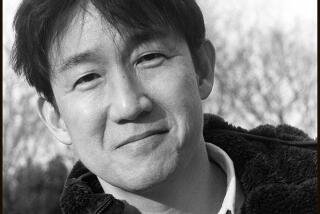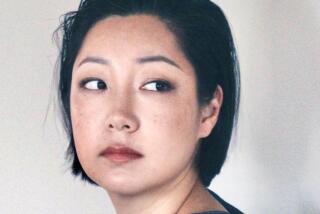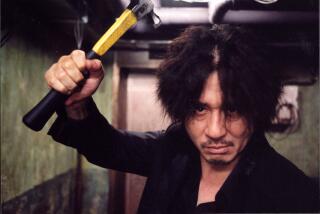‘Vengeance’ served with style
A woman released from prison finds a chorus of Christians in Santa Claus suits waiting to greet her. She is wearing the iconic polka-dot dress she was tried and convicted in, oblivious to the cold and the welcome. The preacher who converted her presents her with a plate of tofu, symbolizing the “white life” she’s to lead from here on. She knocks it to the ground with the curt suggestion that he perform a physically impossible sex act.
The woman is Lee Geum-ja (Lee Yeong-ae), alternately known as “the Angel” and “the Witch,” who 13 years earlier was convicted of the kidnapping and murder of a 5-year-old boy. The combination of her beauty and the grisliness of the crime turned her into a tabloid darling, and her good deeds and ensuing prison murders made her a favorite of fellow inmates.
On regaining her freedom, Geum-ja tracks down her old friends from prison, cashing in their debts of gratitude to help her get back at the real villain of the story, Mr. Baek (Choi Min-sik, “Oldboy”), the teacher who took her in when she was a pregnant teenager and drew her into his crimes.
“Lady Vengeance” is the final installment in Park Chanwook’s riveting, ultra-weird revenge trilogy, which began with “Sympathy for Mr. Vengeance” and was followed by “Oldboy.” Like the others, “Lady Vengeance” borrows its structure from the well-worn revenge genre and turns it on its ear. What interests Park, a onetime philosophy major, is not the cathartic release of righteous vengeance glamorized in Hollywood movies, but its soul-destroying consequences. Geum-ja is innocent of the crime, but she absorbs the guilt nonetheless, and is transformed by her desire to avenge the injustice.
Park is a gifted visual artist with a gift for defamiliarizing even the most prosaic scenes. Sometimes, it’s just a matter of off-kilter blocking, or a fanciful use of kitsch, that nudges a commonplace image into something strange and sublime. His style influences performances as well, as the actors shift fluidly from naturalistic bluntness to uncanny expressionism, recalling at times the acting style found in David Lynch’s movies. In one especially horrific scene, Geum-ja collects the families of all of Mr. Baek’s tiny victims in an abandoned schoolhouse, and shows them videos of each child’s demise. What she does next is offer them a moral choice that’s too ghastly to contemplate, too tempting to turn down.
Park has said he has used the revenge genre to discuss contemporary Korean society. In “Sympathy for Mr. Vengeance,” he addressed class; in “Oldboy,” corrupt meritocracy; in “Lady Vengeance,” the subject is women’s uneasy place in society. In prison, Geum-ja assumes contrasting identities that have been imposed on her by a prurient public unable to reconcile her looks with her crime.
Reuniting with her child, who was adopted by an Australian couple, Geum-ja finds herself once again split between two irreconcilable roles -- the motherly angel and the all-business witch -- chafing against the constraints. Lee Yeong-ae projects innocence even as she kills in cold blood, and remains a mystery even as everyone around her tries to tell her who she is and how to live. Everyone who knows her has a different idea of what that is, exactly. And all of them are too limiting to qualify as human.
*
‘Lady Vengeance’
MPAA rating: R for strong violent content, some involving children and sexuality
A Tartan Films release. Directed by Park Chanwook. Written by Chung Seo-kyung and Park Chanwook. Produced by Lee Tae-hun and Cho Young-wuk. Director of photography Chung Chung-hoon. Editors Kim Sang-bum and Kim Jae-bum. Running time: 1 hour, 55 minutes. In Korean with English subtitles.
Exclusively at the Nuart, 11272 Santa Monica Blvd., West L.A. (310) 281-8223.
More to Read
Only good movies
Get the Indie Focus newsletter, Mark Olsen's weekly guide to the world of cinema.
You may occasionally receive promotional content from the Los Angeles Times.










